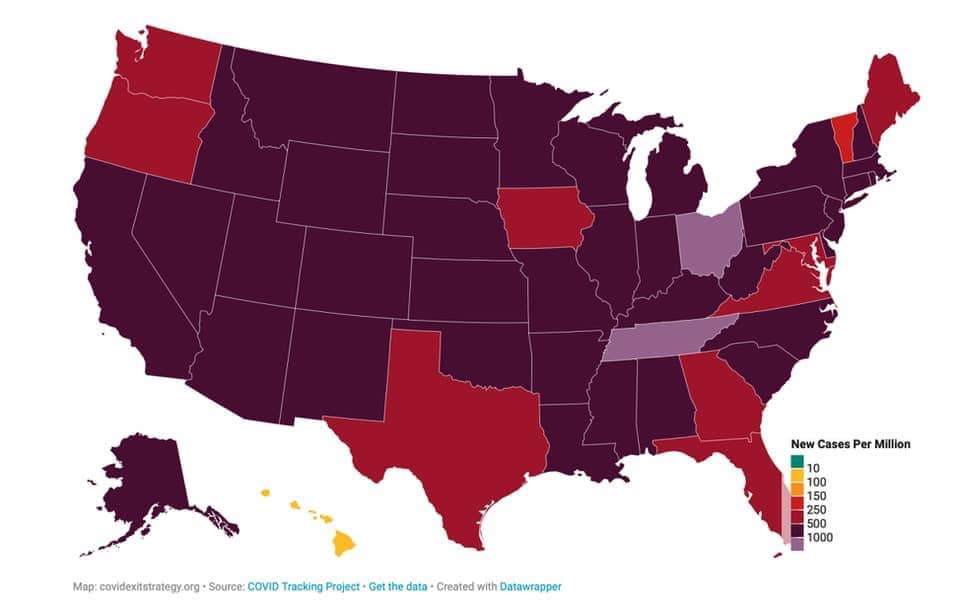Gov. Bill Lee is proposing a significant change to the way the state funds public schools. His proposal would replace the decades old BEP formula with something he calls TISA – Tennessee Investment in Student Achievement.
Except, well, the plan does nothing to invest in student achievement. Rather, it is a complicated system of weights applied to students that supposedly will lead to improved student achievement based on how districts use funds for targeted interventions.
In other words, the same old stuff in a shiny new, complicated package.
Here’s how we know this plan won’t boost student achievement. First, it does nothing to shore up the shortage of teachers needed to adequately support students now. That is, according to both TACIR and the Comptroller, Tennessee districts hire MORE teachers (11,000 more, to be exact) than the current formula funds. Guess what? TISA does nothing to change that. There is no indication that the weights will mean more teachers hired and supported by state funding.
Next, TISA does nothing to boost overall teacher pay. Sure, TISA “allows” lawmakers to earmark certain funds to give raises to “existing” teachers, but that doesn’t mean they will. Nor does it mean those raises will be significant. This year’s $125 million set aside for teacher compensation will mean what is effectively a 2-3% raise for most teachers. Based on current inflation rates and rising insurance premiums, this essentially amounts to a pay cut.
If Lee actually wants to improve student achievement, he’d make a significant investment in teacher salaries. First, we have a teacher shortage that is only getting worse – more pay is not the only remedy, but it is a good tool to stem the tide.
Next, a recent study shows that boosting teacher pay has a direct, positive impact on student achievement.
Researchers have conducted a massive, unprecedented statistical analysis of public school teacher salaries and student standardized test performance in the United States, finding that when teachers are paid more, students score higher.
Why does this happen? The researchers offer this suggestion:
Prior research has shown that increased teacher salaries prompt higher quality students to seek careers in education. Additional pay also lowers teacher turnover, keeping talented, experienced teachers in their jobs and resulting in more educator continuity for students, which builds trust between teacher and pupil.
This recent study of teachers in the United States can be compared with a study by researchers at the London School of Economics which also demonstrated that higher teacher pay was causally related to higher student achievement:
“. . . we find that a 10% increase in teachers’ pay would give a 5-10% increase in pupil performance.”
But Lee’s plan doesn’t do that. Or even approach that. At best, this year’s raise will mean 3%. Going forward under TISA, every indication is that the state increase to base teacher compensation will be between 2-4% a year – or, a mere inflationary adjustment – no real boost in actual income.
Here’s what Lee’s plan does do: Raise local property taxes.
Meghan Mangrum in The Tennessean offers an analysis of how local property taxes would increase under TISA:
“Under TISA, the required local match for Davidson County is anticipated to increase by $35 million between FY23 and FY24, while the state’s investment in Nashville’s students will only increase by $12.6 (million) under the projections they have provided,” spokesperson Sean Braisted said in an email.
And that’s just Nashville. 28 districts will have to increase local contributions (raise taxes) beyond current levels in FY 2024. Then, in FY 2027, after TISA’s hold harmless expires, it is likely many more districts will see increased costs.
TC Weber dives deeper into the funding issue – the bottom line: Your local taxes will likely go up to fund TISA.
Why is this happening? Because the new formula is NOT addressing the underlying issue: Our current formula doesn’t pay for the teachers we need. The secondary (and very important issue) is that TISA does not address the need to significantly boost teacher compensation.
Here’s the deal: Tennessee COULD address this issue.
As the Sycamore Institute tells us:
Governor Bill Lee and state lawmakers just used some of Tennessee’s largest ever budget surplus to fund a historically large incentive package for Ford Motor Company. Even after that deal, policymakers may still have at least $3 billion in unallocated funds to appropriate next year. This total includes a record-setting $2 billion for recurring items – and that’s before even speculating about routine revenue growth. For comparison, Tennessee’s total budget from state revenues this year was about $21 billion before the Ford deal passed.
We’ve got $3 billion in extra cash just lying around!
Well, and we’ve got even more. The Department of Finance and Administration reports the state is more than $2 billion OVER estimated revenue collections this year so far!
Year-to-date revenues for six months were $2.15 billion more than the budgeted estimate. The general fund recorded $2.02 billion in revenues more than estimates, and the four other funds totaled $126.7 million more than year-to-date estimates.
So, here’s what a student-achievement focused budget would look like:
$1 billion to close the gap in needed teachers – that’s $1 billion from the state allocated to local districts to fund the teachers local dollars are already providing.
$1 billion to raise teacher pay by 15% or more for ALL teachers – This assumes the state covers the cost of the increase for the newly state-funded teachers (7000-9000) plus all teachers currently covered.
Guess what? We can do that with billions of dollars left over.
Guess what else? Implementing a plan like this can be done by making adjustments to the current BEP formula.
And you know what else? This can be done without raising local taxes one cent. No state tax increase, no local tax increase, more teachers covered with state dollars, and better pay for all teachers. That’s an evidence-based, affordable solution to the problem Lee says he’s trying to address.
Which begs the question: Why does Lee’s plan rely on local property taxes and why doesn’t Lee’s plan improve the number of teachers or pay them significantly more?
The answer could be in the millions of dollars spent by pro-voucher and pro-charter (privatization) interests to influence state education policy.

For more on education politics and policy in Tennessee, follow @TNEdReport
Your support – $5 or more – makes publishing education news possible.









